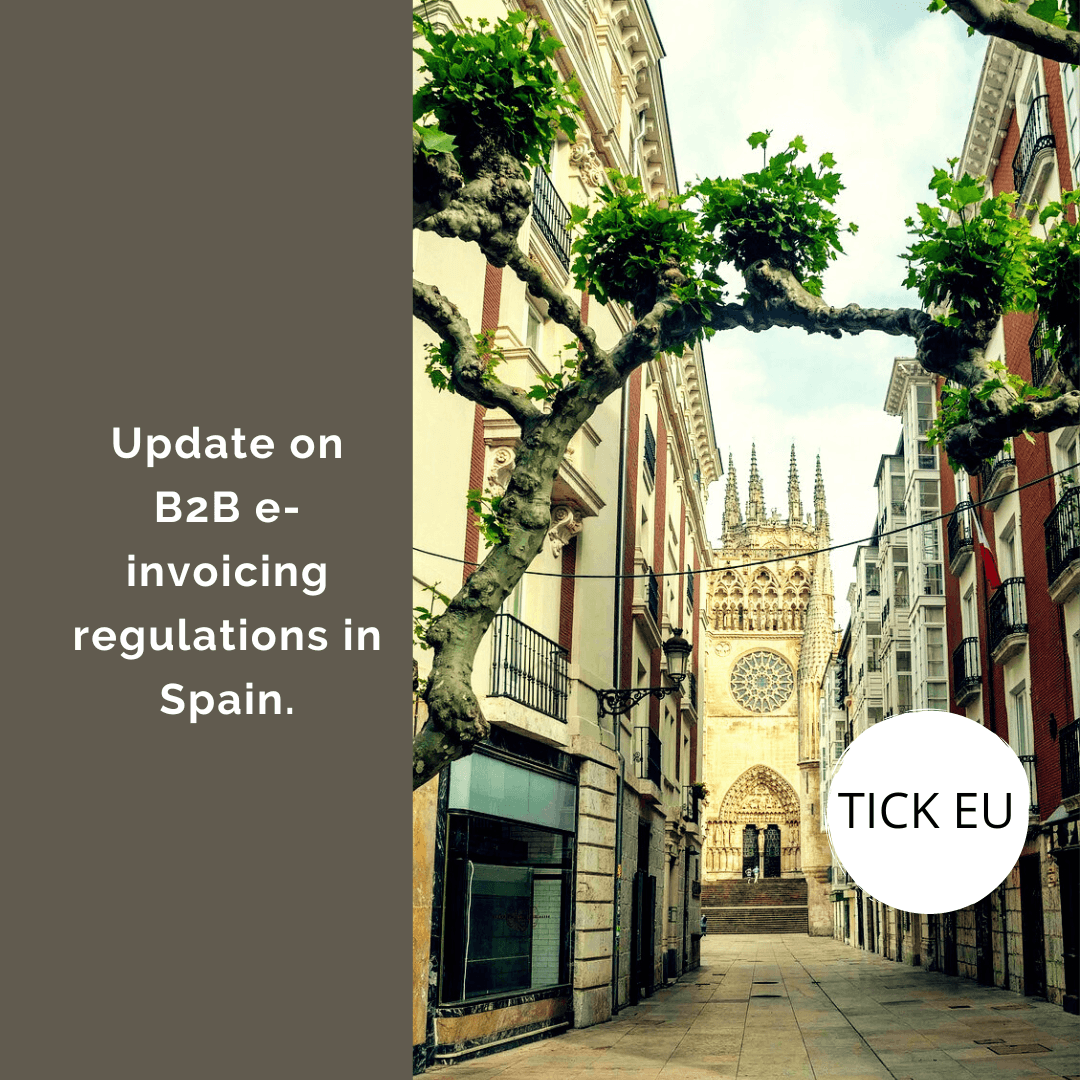EU’s Opinion on Spanish Plans for B2B e-Invoicing
The proposed law on mandatory B2B e-invoicing, scheduled for July 2025, is likely to be adopted by May or June.
On May 6th, the European Commission endorsed the Spanish regulations (Real Decreto de desarrollo de la Ley 18/2022) Crea y Crece, which introduce the obligation of B2B e-invoicing. The EU’s opinion was in response to Spain’s request for deviation from the EU directive to prioritize legal status of e-invoices over paper invoices. The report indicated no infringement of EU law.
The European Commission focused its attention on the proposed wording for digital signatures and the addition of “seals” covering invoices issued by legal entities.
Spain has not yet obtained the necessary approval from the European Commission to implement mandatory e-invoicing. However, EU proposals regarding the ViDA Digital Reporting Requirements include the swift removal of this requirement, subject to approval by EU finance ministers.
Close Approval of B2B e-Invoicing Plans Expected
It is expected that the Spanish government will approve regulations introducing mandatory e-invoicing in B2B transactions in May 2024. Since the bill requires a minimum 12-month notification period for implementation, the earliest possible date is July 1, 2025, although it may be later, considering the lack of detailed technical specifications and the time needed for implementation for tax authorities, companies, and accounting/ERP system providers.
Additionally, technical teams warn that launching before mid-2025 may be challenging.
Spain will adopt a two-stage approach (see below), starting with large taxpayers (turnover exceeding 8 million euros) in July 2025 or later. Then, all other taxpayers will be subject to the obligation 12 months later – in 2026.
Separately, obligations related to certified e-invoices in Spain will come into effect on July 1, 2025.
EU Plans for ViDA Digital Reporting Requirements for intra-community reporting and e-invoicing in 2028 have been postponed until at least 2030. Spain will likely want to incorporate final technical requirements and implementation dates into its plans.
June 2023: Spain publishes e-invoicing regime project: decentralized CTC with public portal or submissions from certified external agents
The Spanish State Tax Agency (Agencia Estatal de Administracion Tributaria) has updated the draft royal decree regarding the proposed VAT e-invoicing regime, which will apply to B2B transactions – for companies and self-employed individuals. The project includes very limited specifications regarding the e-invoice format.
Spain has chosen the decentralized Continuous Transaction Control model with the following file options: UBL; Facturae; CII; or EDIFACT. This model will be supported by both a public e-invoicing solution, serving as a repository for invoices, and private e-invoice exchange platforms operated by approved agents.
The regulations will only come into force 12 months after publication in the Official State Gazette. This means that the earlier launch plan in July 2024 is unlikely, especially given the lack of detailed technical specifications. The situation is further complicated by the need for Spain to obtain approval from the European Commission to introduce mandatory e-invoicing, although this should be a formality.
The plan consists of two stages:
- 12 months after the publication of the final regulations: for large taxpayers (turnover above 8 million euros);
- and 24 months after the publication of the final regulations: for all other taxpayers.
The new publication includes technical and informational requirements that must be incorporated into e-invoices to verify payment dates and obtain average payment periods, minimum interoperability requirements between technological solution providers for e-invoicing, and requirements regarding the security, control, and standardization of devices and approved IT or ERP systems generating e-invoices.
E-invoices can be transmitted via:
The Spanish Tax Administration Exchange Platform using Facturae syntax with basic authorization and identification. The invoicing process is completed only when the client accesses the invoice. A free application for smaller taxpayers to create and transmit e-invoices. Certified e-invoicing agents operated privately. A combination of the above.
Spain has already indicated that it will require the implementation of QR codes to aid in digital invoice tracking. The royal decree plans to impose a legal requirement on software developers and retail sellers to ensure that their accounting and similar systems can meet the new e-invoicing requirements and transmit specified data to tax authorities.
The Spanish system will be based on the EU directive on e-invoicing, in accordance with the e-invoice semantics EN 16931. This aligns with EU proposals regarding VAT in the digital era. Tax authorities reserve the right to add further data requirements, including payment details. Parties involved in e-invoice transactions may also agree to add their own additional informational requirements.
E-invoice Formats E-invoices can be delivered in one of the following formats:
- CII – XML message CEFACT/ONU invoice applicable across industries, defined in XML 16B schemas (SCRDM-CII).
- UBL – invoice and credit note messages compliant with ISO/IEC 19845:2015.
- EDIFACT – invoice message compliant with ISO 9735.
- Facture message in the version for invoicing between businesses and professionals applicable at the time.
Role of Private E-Invoicing Agents To ensure operability across all the above formats, private operators must have the capability to transform invoice messages between all supported formats, ensuring the authenticity of its origin and integrity of the invoice content. Agents must be ready to connect with reporting platforms upon request. The government will approve agents based on interoperability, digital security, and continuity planning criteria.
Exempt Transactions Regulations exempt several types of transactions:
Simplified invoices Where there is no statutory requirement to issue an invoice Transactions involving non-residents, both as customers and suppliers
Processing of E-Invoices E-invoice recipients are required to inform the issuer of the status of each invoice, including:
- Commercial acceptance or rejection
- Payment status and date
- Partial payments
- Forwarding the invoice to third parties
All the above information must be communicated to the recipient within 4 business days of receiving the e-invoice.


